Dr. Mario D. Wallace
Dr. Wallace urges Black Americans to confront the reasons behind the Arab and Muslim American vote, emphasizing the importance of understanding their distinct political motivations. He advocates for empathy, recognizing that prioritizing Arab and Muslim American rights does not diminish the fight for racial justice in the United States.
Dear Black Family,
We stand at a moment of profound reflection and recalibration. The loss of Vice President Kamala Harris in the 2024 presidential election to Donald Trump left many of us not only disheartened but grappling with a mix of emotions—pain, confusion, and frustration. The Black community, with an unwavering commitment to change, mobilized in historic numbers, inspired by leaders like the Obamas, Oprah, Beyoncé, LeBron James, and Vice President Kamala Harris herself. Yet, despite these efforts, the electoral map painted a stark reality: Trump secured 312 electoral votes to Vice President Kamala Harris’s 226.
The day after the election, Vice President Kamala Harris addressed a room full of Black women at Howard University, a bastion of Black excellence. Her words were a balm to a brokenhearted audience, emphasizing resilience, activism, and the enduring necessity of collective action. Her message was clear: although the presidency had been lost, the fight for justice and equity must continue unabated.
However, as post-election demographic data emerged, the pain deepened. Black Americans overwhelmingly supported Vice President Kamala Harris, but a surprising majority of Arab and Muslim American voters cast their ballots for Trump. This decision, driven largely by the Biden-Harris’s stance on the Israeli-Palestinian conflict, created ripples of division. For some Black Americans, the Arab and Muslim American vote was perceived as a dismissal of our shared struggle for equity and inclusion. Social media platforms have since been rife with commentary, some even questioning the solidarity that had long been assumed between these communities.
This moment of division calls for introspection. Were we asking Arab and Muslim Americans to vote against their self-interests, particularly when the stakes in Palestine were so deeply personal for them? Were we expecting them to prioritize our struggles over their own? These are tough questions but necessary ones. They challenge us to move beyond frustration and consider the layers of identity, loyalty, and political calculus that shape our decisions at the polls.
As we navigate the aftermath of the 2024 election, it is essential to reflect on what this means for Black Americans as a collective. Historically, we have thrived on unity and a shared sense of purpose. Yet, this moment reveals a growing shift toward individualism, a trend that risks fracturing our communal strength. Simultaneously, our relationships with other marginalized groups, particularly Arab and Muslim Americans, are being tested. These dynamics demand that we reassess our approach to solidarity—not as a simplistic merging of interests, but as a nuanced, empathetic engagement with the varied realities faced by different communities.
The Power of Our Vote
In the 2024 election, Black Americans once again proved to be a cornerstone of the democratic process, demonstrating the power and importance of collective civic engagement. Our voter turnout exceeded expectations, playing a pivotal role in determining outcomes in multiple battleground states.
This achievement underscores a vital truth: our participation matters. The effort we invest in organizing, advocating, and showing up at the polls is invaluable in the fight for policies that directly impact our communities. The results of this election highlight the enduring strength and resilience of Black voters as a collective force in American politics.
However, the work is far from over. The fight for justice, equality, and equitable access to the American Dream has always been about more than just one election. For Black Americans, this struggle is deeply rooted in history—from the era of slavery to the civil rights movement to today’s battles for economic justice, voting rights, and the dismantling of systemic inequities. While elections are an essential tool in the fight for progress, they are not the end of the journey.
Though the outcomes of the 2024 election may not align with our hopes, they serve as a reminder to remain steadfast in our commitment to the larger goals of equity and systemic change. This moment calls not for despair but for renewed determination—to continue organizing, educating, and pushing forward toward the justice and equality we have long fought to achieve.
A Nation Divided: The Political Landscape
Looking at the political landscape post-election, one thing is clear: our nation remains deeply divided. The polarization we see in American politics is not new, but it has reached new heights in recent years. This division is not merely ideological—it’s also racial. As Black Americans, we find ourselves in a unique position, where our fight for civil rights is often seen as a challenge to the status quo by some factions of the population. We’ve seen how rhetoric around race, immigration, gender, and other social issues has become more contentious. But through it all, we’ve remained steadfast in our pursuit of justice and equality.
It’s easy to become disillusioned when we see elected officials who seem more interested in divisive rhetoric than in addressing the core issues that affect our communities—issues like police violence, economic inequality, healthcare access, and education reform. Yet, it’s crucial that we don’t let the current political climate discourage us. We’ve overcome greater challenges before, and we will continue to do so.
What we must do now is more than just wait for change to come from those in power. We need to continue organizing at the local level, focusing on building power from the ground up. As we know, real change doesn’t come from Washington; it comes from our communities, our activism, our voices. As we engage in the post-election reflection, we must remain committed to pushing for policies that promote economic justice, equal rights, and systemic reform. Our efforts to fight for affordable housing, good jobs, better schools, and more equitable healthcare must not stop with the ballot box.
The Growing Divide: Black Americans’ Shift Toward Individualism
Historically, Black Americans have been a collectivist people, understanding that our strength lies in our unity. We have fought for justice, equality, and freedom not as isolated individuals but as a community bound together by shared goals and mutual support. However, post-election, there seems to be an increasing number of voices advocating for individual advancement over collective gain. This growing trend toward individualism in the Black community is particularly visible when examining our response to the election and the actions of other marginalized groups, such as Arab and Muslim Americans.
The Arab and Muslim American Vote: A Difficult Choice
For Arab and Muslim Americans, the 2024 election presented a uniquely painful dilemma, one arguably more complex than that faced by other racial and ethnic groups. Historically marginalized and often subjected to discrimination, profiling, and surveillance, these communities found themselves grappling with a profound crossroads—one that forced them to weigh their values, identity, and the stark realities of national and global politics.
In a controversial turn, many Arab and Muslim Americans chose to support Donald Trump. While his earlier rhetoric and policies had often been seen as hostile and divisive, Trump took steps during his campaign to meet with Islamic leaders. These discussions reportedly included agreements on national security and foreign policy matters, particularly in addressing the crisis in Gaza and the broader Palestinian plight. For many, this outreach signaled a willingness to engage on issues critical to their community, which contrasted sharply with the Biden-Vice President Kamala Harris administration’s perceived indifference. Despite hopes that Vice President Kamala Harris would engage with their concerns, she alienated many Arab and Muslim American voters. This left them feeling politically stranded, leading to a difficult and, for some, reluctant alignment with Trump.
The Biden-Kamala administration’s actions have played a key role in this decision. The administration’s consistent support for Israel, especially in light of the ongoing violence against Palestinians, has led many Arab and Muslim Americans to feel that their concerns have been ignored and their voices unheard. According to reports, over 42,000 Palestinians have died in the ongoing conflict, and many Arab and Muslim Americans feel the Biden administration’s complicity in this loss of life is unacceptable. Despite their political alignment with progressive causes, the administration’s unwavering support for Israel’s military actions in Gaza was seen as a betrayal by many in the Arab and Muslim American communities.
The Disconnect Between Black Americans and Arab and Muslim Americans
This leads us to a critical conversation: the growing racial and political rift between Black Americans and Arab and Muslim Americans. As the U.S. becomes increasingly polarized, the political lines that separate us seem more entrenched than ever. Historically, Black Americans and Arab and Muslim Americans have shared a common experience of racial marginalization. Yet, as tensions rise, it is clear that solidarity between these groups is weakening. Many Black Americans, still fighting for equity within their own country, may view the political dynamics around Palestine as a foreign issue—one that is not directly relevant to their lived experiences of racism and economic disenfranchisement. Meanwhile, some Arab and Muslim Americans, particularly those who supported Trump, may feel alienated by the perception that their struggles are not fully recognized or understood.
However, in this moment, it is essential that we remind ourselves of the history of collective struggle. The civil rights movements, the fight for labor rights, the battles against police violence—all of these struggles were not fought in isolation. When we consider the ways in which the systems of oppression are interwoven, we must recognize that one group’s pain is the pain of all. A failure to unite based on shared experiences of injustice weakens our collective power and leaves us vulnerable to further division.
Boycotting Corporations: Starbucks and McDonald’s
Another issue that underscores the growing divide is the boycott of corporations like Starbucks and McDonald’s. These companies have come under fire from activists for their alleged complicity in the Gaza and Palestinian conflict, leading to calls for widespread boycotts. While this movement has garnered significant attention, the post-election climate has revealed a stark disconnect between Black Americans and Arab and Muslim Americans on this issue.
For instance, some Black Americans have actively broken the boycott, using their patronage of Starbucks and McDonald’s as a form of protest against Arab and Muslim Americans’ decision to support interests perceived as contrary to Vice President Vice President Kamala Harris. Social media, especially TikTok, has been flooded with over 100 videos from Black Americans criticizing the Arab and Muslim American voting choices, some even showcasing themselves enjoying items from these very corporations as a symbolic gesture of discontent.
This reaction reflects feelings of betrayal among many Black Americans, who perceive the Arab and Muslim American vote against Vice President Kamala Harris as a rejection of shared solidarity. While this frustration is understandable, it’s important to approach the issue with empathy. By putting ourselves in the shoes of Arab and Muslim Americans, we can better understand the complexity of their decision—a choice shaped by deeply personal and political stakes tied to their global and domestic realities. Only through dialogue and mutual understanding can we begin to heal this rift and foster a stronger sense of collective purpose.
Solidarity and Self-Determination
In times like these, it’s essential that we remember the importance of solidarity—working together as a community to ensure that we are all lifted up. The struggle for Black liberation is not an individual pursuit but a collective one. When we fight for one, we fight for all. This means that, even when political outcomes don’t go our way, we must continue to support one another in tangible ways.
It’s easy to feel isolated when things don’t go according to plan, but history shows us that our greatest strength lies in our unity. From the Civil Rights Movement to the Black Lives Matter movement, we’ve seen time and again that when we come together, we are unstoppable. We must continue to support Black-owned businesses, build institutions that serve our needs, and invest in our young people—ensuring that the next generation is equipped to take on the challenges ahead.
Solidarity also means supporting one another emotionally. We must recognize that the aftermath of an election can be a time of great stress and fatigue, especially for those who have worked tirelessly in the months leading up to it. Whether the results are what we wanted or not, it’s important that we take time to care for our mental, physical, and emotional health. Healing and self-care are not luxuries; they are necessities.
The Path Forward
While the election results may have provided moments of disappointment, they also offer new opportunities. Let us take this moment to renew our commitment to building the future we deserve. Let us focus on strategies that uplift Black communities through entrepreneurship, education, and advocacy. The struggle does not stop when the results are in. It continues with us every day.
We must be proactive in building wealth, supporting our own businesses, and investing in educational opportunities for our children. It is through self-determination that we will create the conditions for long-lasting change. We must not wait for someone else to fix the system; we must fix it ourselves. That means voting, yes, but it also means investing in our communities, running for office, and taking on leadership roles in our neighborhoods, cities, and states.
Now is the time to channel our energy into building structures of support—programs and systems that provide ongoing opportunities for Black professionals, entrepreneurs, and workers. We must strengthen our support systems and institutions and ensure that they are places of empowerment. We must also remember that change takes time; it requires persistence, patience, and resilience. The work is not easy, but we have proven, time and again, that we are up for the task.
A Call for Hope and Action
As we look toward the future, let us hold fast to hope. Our ancestors endured the unimaginable, and they paved the way for us to have opportunities that once seemed impossible. We owe it to them to carry their legacy forward, to continue their fight for justice, and to never lose sight of the possibilities that lie ahead.
The 2024 election may have been a pivotal moment, but it is not the end of the story. We have an opportunity to continue shaping the narrative of our lives and the lives of those who come after us. Let us remain committed to work, to each other, and to the ongoing pursuit of a world where we are not just surviving but thriving.
A Call for Unity
As we look ahead to the future, the task is clear: we must move beyond division and reclaim our collective power. Whether we are discussing the political challenges of Arab and Muslim Americans, the complicity of the Biden administration in international conflicts, or the fractured relationships between marginalized communities, the solution is rooted in solidarity. If we are to achieve true justice, we must remember that our struggles are linked, and we must fight together. This moment in history calls for unity, understanding, and a collective commitment to challenging systems of oppression that affect all of us. Let us build a future where our shared goals of dignity, justice, and peace become a reality for every community, no matter their background or beliefs.
Let us not lose sight of the power we hold when we come together. The choice is ours: Will we continue to divide, or will we unite for the future we deserve?
In solidarity,
Dr. Mario D. Wallace
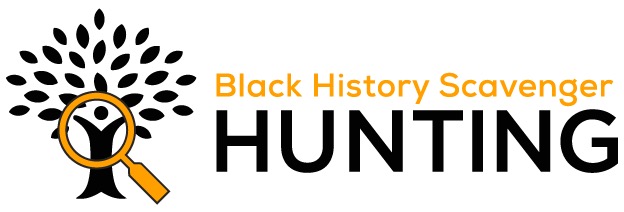
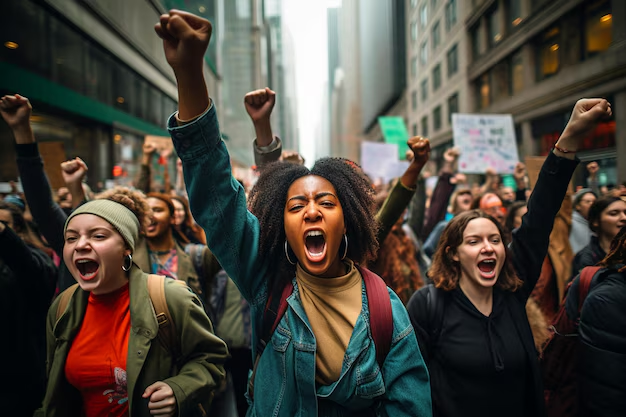
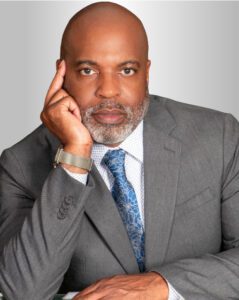

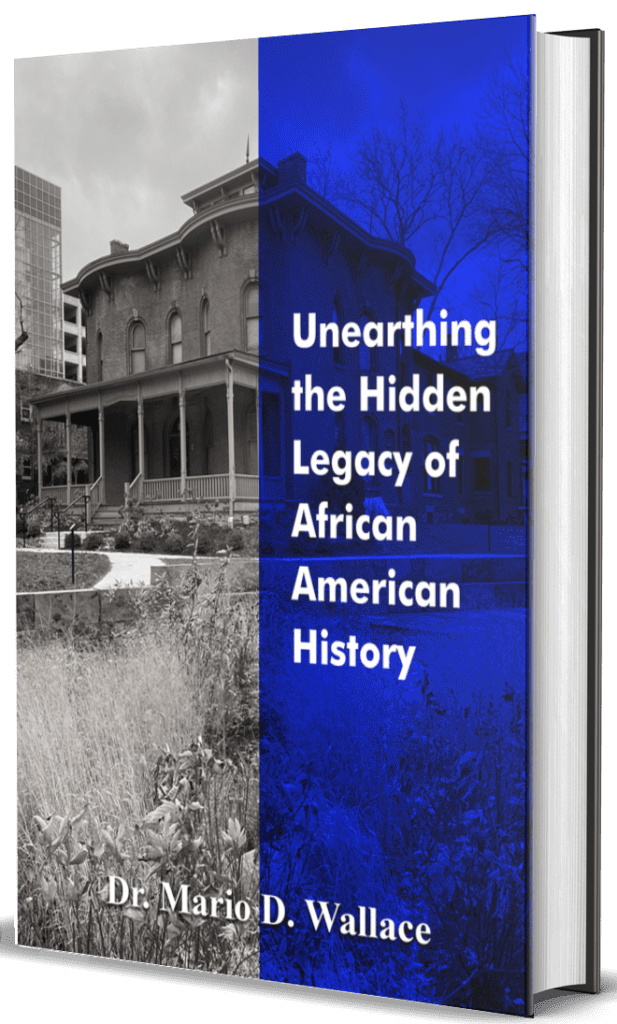
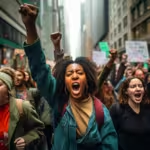

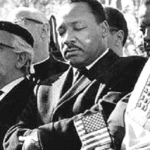

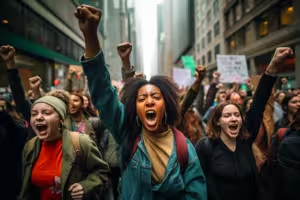
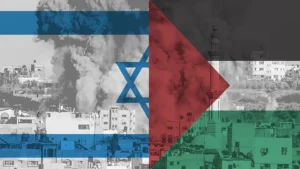
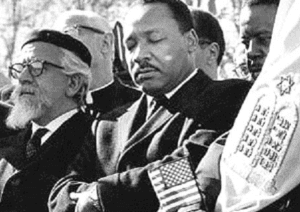

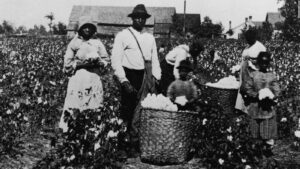
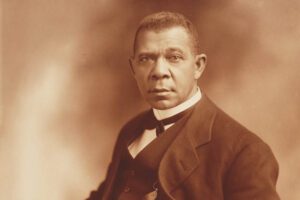

2 responses
I really enjoyed your article! It was super enlightening and helped me understand a lot about the recent election and the different political views in our communities. I loved how he talked about the importance of empathy and solidarity among Black Americans and Arab and Muslim Americans. It made me think about how we can support each other, even when we have different opinions. This article really opened my eyes to the challenges we face and reminded me that unity is key in our fight for justice. Thank you, Dr. Wallace, for sharing your insights!
You’re welcome! This article shines a critical spotlight on the evolving political and social dynamics within the Black community post-election. By addressing the importance of maintaining solidarity between minority groups like Black Americans and Arab and Muslim Americans, we as a people can emphasize a path forward rooted in unity and understanding.